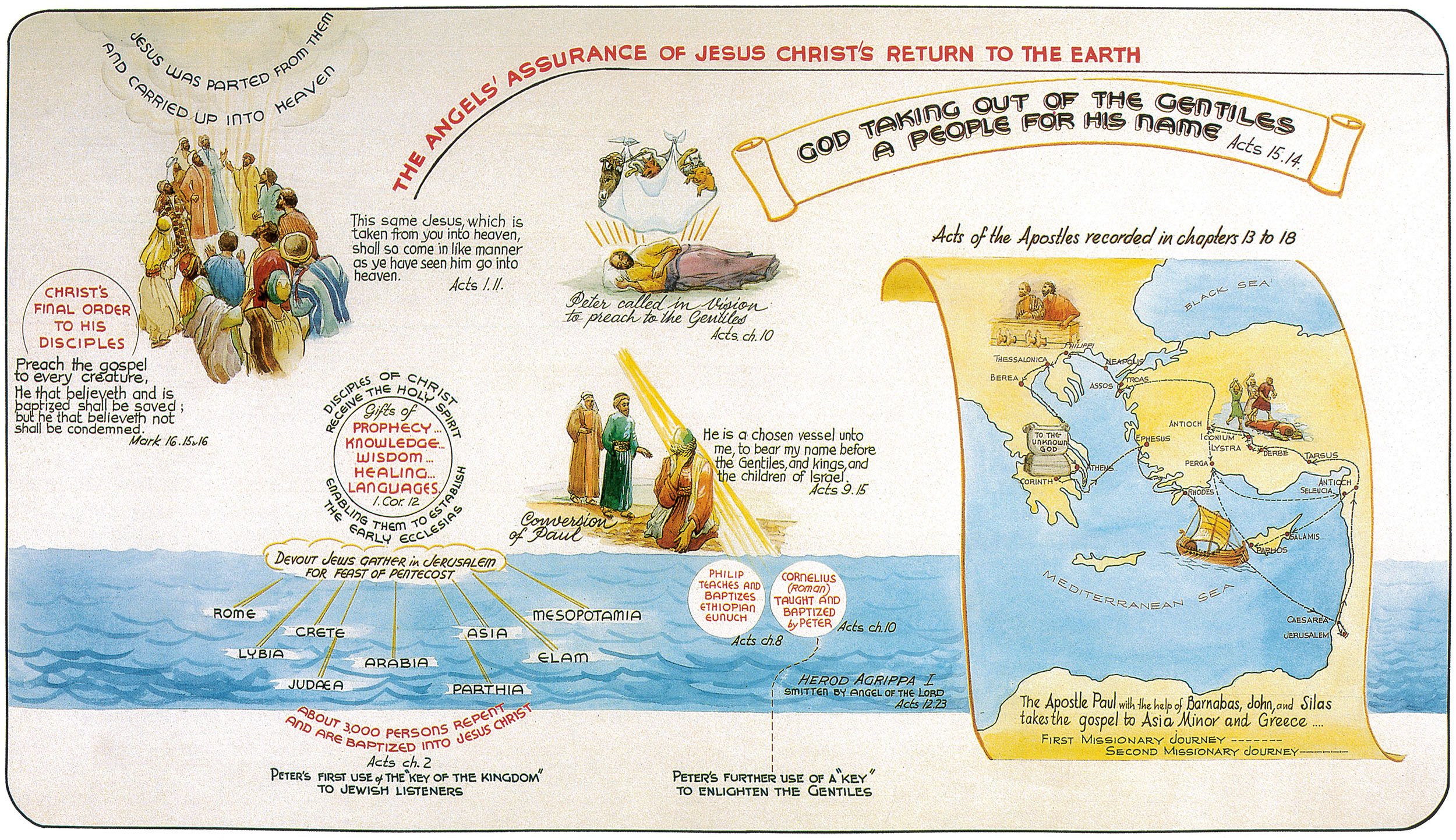The Holy Spirit
The Holy Spirit in the First Century
As we have seen, the Lord Jesus Christ had been given the power of the Holy Spirit to work miracles, so that there could be no doubt that he was sent by God (John 3:2; Acts 2:22; see Lesson 20).
After his resurrection, Jesus told his disciples that when he had gone to heaven they, too, would receive the power of the Holy Spirit. He also explained why this would be so. It was given for two particular reasons.
It would give them the ability to understand the ways of God clearly and help them to remember all that Jesus had taught them (John 14:26).
They would be empowered to do miracles and speak in other languages as an irrefutable sign that Jesus had been raised from the dead and that God was vindicating the Gospel message they proclaimed. God would not bear witness with miracles to the message of teachers if they did not speak the Truth (John 9:30–33).
It was through the power of the Holy Spirit that the disciples were able to record the teachings of Jesus so accurately. Prior to Jesus’ death the disciples had often misunderstood his teaching, but now the Holy Spirit enabled them to bear accurate record of what they had seen and heard.
The Miracles
There are those today who claim that they have the power of the Holy Spirit and can work miracles just as the apostles did in the first century. This is a delusion. As we read the life of Jesus and of the apostles, we quickly realise that the effect of the miracles was instantaneous and complete. There were always eyewitnesses who spoke of the wonder of the miracles they had seen, so that multitudes came from hundreds of kilometres away to be healed (Matthew 4:23–25). In the same way, the miracles which the apostles did in the name of Jesus were proclaimed far and wide (Acts 4:16; Acts 5:14–16). Testimony was not confined to the believers of some little sect.
Today, followers of a variety of religious persuasions claim to work miracles by the Holy Spirit. The very fact that they hold beliefs diverse from one another nullifies their claim to work in God’s name, since God proclaims Himself a God of Truth. Miracles must honour God and must therefore, as in the first century, be a witness to the truth of the Gospel. We must first examine the doctrines of those who claim such power to see if they really are in harmony with the Bible (1 John 4:1).
The Holy Spirit Given for a Purpose
The Holy Spirit was given in the first century so that Jesus, and then the apostles, had a divine witness to the truth of their message. Once the New Testament was written and people could read about the wonder of Jesus Christ and the teaching of the apostles, this became no longer necessary. God ceased to make His power available after the apostles and their immediate disciples died. By this time the Gospel message had spread throughout Asia, Europe and North Africa and copies of those teachings had been collated into the New Testament. The apostle Paul, realising that this would happen, spoke of the time when the ability to prophesy, talk in foreign languages (or, tongues), etc would cease, because the revealed will of God would be completely recorded in His word, the Bible (1 Corinthians 13:8–10).
Speaking in Tongues
In Acts 2 we have the record of the apostles “speaking in tongues” (or other languages). As we read through the incident we note that there were Jews gathered from all over the Middle East, yet when the apostles spoke “every man heard them speak in his own language” (verse 6). This miracle caused the people to marvel saying, “Behold, are not all these which speak Galileans? And how hear we every man in our own tongue, wherein we were born?” (verses 7–8).
The miracle of speaking in other languages enabled the Gospel to spread more rapidly throughout the Empire. The apostles, who were Galileans, could now speak in foreign languages. This gave them the ability to preach the Gospel throughout the world in the tongue or language of the hearers. Once the Gospel was believed and established in those countries there remained no need for this miracle to continue.
Adapted from “The Exploring the Bible Course” by David Evans

